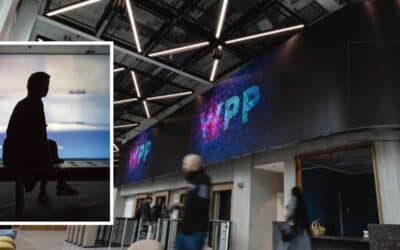The debate over where and how staff should work is rarely out of the headlines. Should employees work from home, embrace flexible hours, or return to the office full-time?
This week fintech giant Revolut doubled down on flexible working despite opening a sprawling new HQ – but other leaders are tightening WFH policies almost by the day. In his first day in office, Donald Trump declared working from home ‘dead’ and ordered everyone back in.
But what do Northern leaders think about the evolving workplace?
Manpreet Singh is CEO of Bobble Digital, a media-focused digital marketing agency based in Leeds. The agency moved its headquarters to Department Leeds Dock in 2023, which is a flexible workspace operator with coworking, private offices and creative studios.
“Within the digital marketing space, as we work predominantly on our laptop devices and online platforms there will be a state of constant hybrid working moving forward,” he says.
“At Bobble we’ve adopted the three days in and two days working from home approach. The face-to-face time allows for constructive collaboration but giving our employee’s flexibility to work from home a couple of days supports their personal lives giving more work/life balance”.

“Living where we want to live and working remotely makes the work better”
In stark contrast, Pete Bracegirdle is passionate about the power of working remotely. He co-founded Creative Coalition in 2020 to offer businesses and NGOs big agency expertise – without the big agency.
His organisation works entirely remotely for a number of reasons – mainly because “it works”.
“Because we work in small groups, working together on zoom is like sitting across from someone at a desk and works brilliantly,” he explains. But it’s all about talent too.
“Talent can come from anywhere and everywhere. We can work with other creative people from all over the world. So our pool of available talent is virtually infinite.”
For Creative Coalition, it also removes overhead costs. “That makes our services more affordable to more clients and our business more profitable and flexible.”
And for a creative bunch, embracing remote work leads to happier people that are “more creative”. He adds: “In our business, the best work comes from happy people with life balance. Living where we want to live and working remotely makes the work better.”
Over at Manchester-based tech firm Anumana, the business operates with a fully flexible working policy – but with no mandated office days or core hours. While Anumana has an office space, attendance is “entirely optional” and supports its staff working various working patterns, from compressed hours to part-time arrangements.

According to Hemant Patel, CEO of Anumana, he says: “Effective working isn’t about where or when people work – it’s about enabling them to deliver their best. We don’t track hours or mandate office days – we measure success through client deliverables. It’s that simple.
“What’s interesting is that without mandated office time, our people still choose to come in when it adds value – whether for problem-solving or team collaboration. The key is trust – we measure success through delivery and impact, not through time spent at a desk.
“Especially in tech, this flexibility actually enhances innovation and leads to better output for our clients.”
“That’s the real risk we’re facing…”
In agency land, advertising giant WPP has doubled down on its return to in-office work. Elsewhere, other agencies across the North see the benefits of in-person collaboration too.
Dora Papp-Sutcliffe, operations manager at HUB, recently shared her thoughts with us on how a physical workspace has the power to encourage collaboration, focus and creative flow in ways that digital interactions “struggle to replicate”.

“There’s a reason why some of the world’s most innovative companies invest heavily in their spaces. It’s not just about aesthetics, it’s about functionality.”
She added an interesting lens to the debate: “Think about it – most of today’s executives, particularly in large corporations, spent their formative years in buzzing office environments, learning through proximity, mentorship, and hands-on collaboration. Would they be where they are today if they had started their careers from their spare bedrooms, joining the occasional video call?
“Probably not. And that’s the real risk we’re facing – not just a logistical challenge of office space or scheduling, but a fundamental shift in how future generations will or won’t) develop into effective and meaningful leaders.”
She’s not alone. Alex Willcocks, CEO of Engage in Leeds, broadly agrees with Revolut’s approach to flexible working – but believes being fully remote doesn’t work for agencies.
“If you have a high-performing team you trust, giving them the flexibility to work where they’re most productive makes complete sense and leads to better outcomes. Personally, my most productive days are the two I spend working from home,” he says.
“That said, I also believe that if you work in the agency world, you should have a strong desire to be part of something bigger. To build that sense of belonging, you need to spend time with colleagues in person, not just over Google Meet. In-person time is essential for building relationships – and crucially, equity in those relationships. When challenges inevitably arise, people who’ve built those connections are more likely to approach situations with empathy rather than digging into their own corners.”
“Because of that, I just don’t believe fully remote working works for agencies. You simply can’t recreate the culture and buzz you feel when walking through the doors of a thriving agency from behind a screen.”

As an agency that has recently transitioned to employee ownership, it has “amplified the importance of spending time together”.
“When you own something, you care more about it – and I don’t believe you can truly show that care and attention remotely,” he explains.
At Engage, the team are in the office at least three days a week although Willcocks explains many choose to come in all five days.
“I don’t believe in mandating full-time return to the office – it suggests a lack of trust and risks missing out on great talent. But equally, I don’t support full remote and that people need time together because that’s when the best cultures are built. And when you get the culture right, agencies are among the best places to work.”











